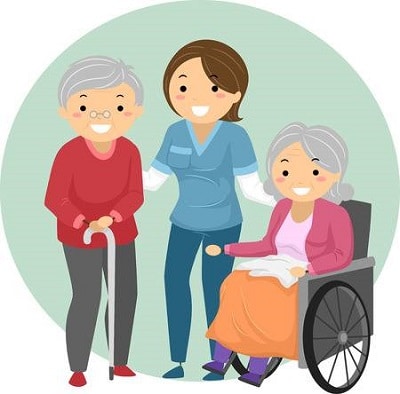 by: James Fleming
by: James Fleming
If you are a caregiver or know a senior who utilizes caregiving services, you may have heard that the demand for senior care is not just on the rise, it’s on a very rapid rise. From 2006 to 2016 alone, jobs in healthcare settings grew a whopping 20 percent. The U.S. Bureau of Labor Statistics projects that home health jobs will grow faster than any other industry in the entire country in the next 10 years.
The silver tsunami has begun to crest and huge demographic shifts are starting to take place as more Boomers age into the “senior” bracket. Advancements in research, medicine, and technology are also helping people live longer. Experts estimate about 1 out of 4 65-year-olds can expect to live past the age of 90.
So in addition to the increase in the sheer number of seniors, why is the demand for senior care so rapidly rising?
More Seniors Looking to Age in Place
Consuming healthcare services used to mean a trip to the doctor, a hospital visit to address an in illness, and eventually moving to an assisted living facility or nursing home that could better address your health needs. Nowadays, however, seniors want to do all they can to remain in their home for as long as possible. In fact, AARP found in a recent survey that 3 out of 4 adults over the age of 50 want to remain in their own homes and communities as they age.
This trend of aging in place goes hand in hand with the expansion of senior care demand as older adults are looking for more home-based care services to take advantage of. Personal caregivers, unpaid family caregivers, home health aides and nurses, even phlebotomists and x-ray techs can come into the home now to do everything from assisting with activities of daily living to drawing blood and conducting mobile imaging scans.
High Rates of Chronic Illness
Increasing rates of chronic illness among older adults naturally translates to an increased need for care services. Did you know that roughly 25 percent of all adults over 65 have diabetes? Or somewhere around 100 million adults have high blood pressure? Similarly, jaw-dropping rates of cardiovascular disease and obesity are robbing seniors of their independence and longevity.
Chronic disease requires constant coordination between patients, caregivers, primary care physicians, specialists, and insurance companies. Senior care plays an important role in helping older adults with chronic illness organize their care and treatment plans to improve their own health outcomes.
More Proactive Health Monitoring
Senior care in large part is about a care network advocating on behalf of a patient. Few actions are as significant when it comes to senior health as being able to monitor and track health metrics at home. That might include checking blood sugar regularly, measuring and recording blood pressure readings, over even cataloging daily exercises.
Not only does this empower seniors to do more for themselves when it comes to their health, but it equips them and their caregivers with the tools they need to take quick action if something comes up. Notice an upward trend in daily blood pressure readings? Is exercise dropping your blood sugar too low? It’s time to talk to a doctor and act on early warning signs before something worse develops.
Growing Prevalence of Alzheimer’s
If you don’t yet know someone affected by Alzheimer’s, chances are in the next 10 years you will. Almost 6 million adults currently live with this debilitating disease according to the Alzheimer’s Foundation and between 2005 and 2015, deaths from Alzheimer’s skyrocketed over 125 percent. By the year 2050, they estimate that 14 million people will be diagnosed with it.
As the oldest demographic in America continues to expand, it’s only reasonable to expect that more and more people will need senior care services due to Alzheimer’s. Assistance with everything from getting dressed to grocery shopping, taking medicine, toileting, eating and more will be needed for so many seniors with this type of cognitive decline and there will be less and less family caregivers to pick up the slack.
In addition to these four major factors at play, a revamped healthcare industry that works towards providing more value-based care (instead of fee-for-service care) will also influence the rise in senior care demand.